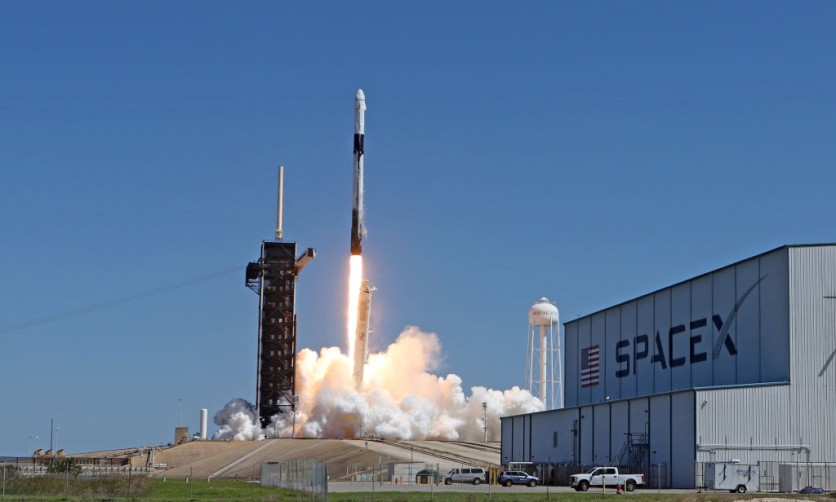SpaceX's internet megaconstellation is set to expand even further as 21 more Starlink Satellites are set to launch on October 21, carried by their very own Falcon 9 rocket. The satellites, as reported by Space.com, will add to the broadband's 4,900-strong fleet of operational satellites.
The Falcon 9 is planned to launch from California's Vandenberg Space Force Base at 3:47 a.m. on Saturday. EDT (0747 GMT; 12:47 a.m. local time in California). If SpaceX fails to meet that deadline, three backup options are available between 4:23 a.m. and 8:23 a.m. It is 6:00 a.m. EDT. EDT (8:23 a.m. to 1000 a.m. GMT).

The report states that if all goes as planned on Saturday morning, the Falcon 9's first stage will land safely at sea on the drone ship "Of Course I Still Love You" around 8.5 minutes after launch.
Meanwhile, the 21 Starlink satellites will be released from the Falcon 9's upper stage around 62.5 minutes following launch.
SpaceX will broadcast the launch live on X. Coverage will begin around five minutes before liftoff.
Starlink's Endless Reach
SpaceX's internet megaconstellation continues to ramp up its reach, as previously reported, Elon Musk aims to reach every corner of the globe with its internet service with up to 42,000 satellites, showing the number of satellites will only continue to grow.
The Guardian reports that SpaceX's activities mount up to 50% of all active satellites orbiting the Earth. While approximately 60% of this year's missions have been dedicated to SpaceX's broadband Starlink.
This will be SpaceX's 75th orbital mission, with at most 25 more orbital missions as the company aims to have 100 flights by the end of the year and 144 by 2024.
Starlink has also reportedly announced its newest development offering a "Direct To Cell" service that employs "seamless access to text, voice, and data" globally for LTE phones; the service is reportedly planned for a 2025 release.
Its defining edge over other mobile-based internet is its coverage, allowing anyone to browse from anywhere on land, lakes, or coastal seas, and no hardware required changes and applications.
Starlink vs. Project Kuiper
Starlink has reportedly been on a "billionaire race" for satellite-based internet marker, with Amazon Founder Jeff Bezos' Project Kuiper as a new contender launching its satellites just recently.
The two billionaires both have plans to dominate the market, with Starlink already at an advantage with an income earned by SpaceX's Starlink at $1.4 billion in 2023.
Amazon's Project Kuiper, on the other hand, plans to catch up with SpaceX by emphasizing productivity. Their satellites will provide improved coverage, capacity, and lifespan while costing less in terms of range and efficiency by focusing on 3,236 satellites.
Related Article : Amazon Reveals Three Terminals to Receive Kuiper's Satellite Internet, But When Is It Coming?

![Apple Watch Series 10 [GPS 42mm]](https://d.techtimes.com/en/full/453899/apple-watch-series-10-gps-42mm.jpg?w=184&h=103&f=9fb3c2ea2db928c663d1d2eadbcb3e52)



